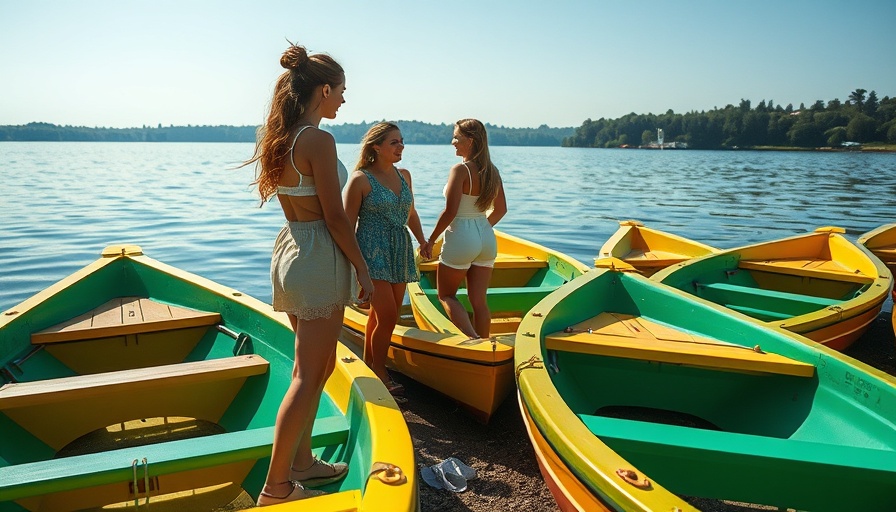
A Feminist Revolution on the Shores of Lake Victoria
In the village of Nduru Beach, Kenya, a remarkable story of resilience and empowerment is unfolding among a group of women known as ‘No Sex for Fish.’ This strong collective of 20 women, including leaders like Justine Adhiambo Obura and Alice Akinyi, has taken a stand against the pervasive practice of trading sex for fish. Together, they've defied traditional norms by securing their own fishing boats, forging a path toward autonomy and self-sufficiency.
The Fight for Dignity and Sustainability
What initially started as a desperate battle to avoid the emotional and physical tolls of coercive sex for resources, this initiative has evolved into a sustainable business model. Through partnerships with charities, these women learned to fish, and now hire men to help in this endeavor. Their tenacity is symbolized by the very name of their group, reflecting their commitment to redefining what it means to engage in the fishing industry without compromising their dignity.
Weathering Storms – Both Literal and Figurative
Despite their significant achievements, the past few years have been marred by catastrophic floods that have ravaged Nduru Beach, damaging homes and disrupting business operations. Since 2020, many of these women have faced the harsh realities of climate change, forcing them to adapt quickly to new dangers. The struggle against floods is compounded by health concerns—their lives have been further complicated by issues surrounding HIV treatment. Although they have relied on consistently available anti-retroviral drugs, recent government budget cuts create anxiety about their future healthcare access.
Resilience Amidst Adversity – Personal Stories
One poignant voice in the group is Rebbeccah Atieno, a single mother and a proud member of the No Sex for Fish cooperative who is also living with HIV. Her story exemplifies the delicate balance these women strike between personal health struggles, the impact of climate, and the fight for empowerment. As they navigate the challenges of being caregivers, income earners, and health advocates, these women illustrate the power of community support in overcoming personal and collective trauma.
Local Impact and Global Attention
The resilience displayed by the No Sex for Fish group has not only transformed lives in their community but has also attracted attention from global audiences interested in women's rights and sustainable practices. Their approach provides an invaluable lesson in achieving gender equality through entrepreneurship and stands as a model for similar initiatives worldwide.
Building a Hopeful Future
The story of these women is a testament to the strength and resolve of grassroots movements. They have not only created a stronghold for their business but also fostered a supportive community that stands together during times of crisis. As they look to the future, the hope is for sustainable solutions to their challenges—be it through improved climate resilience, health support, and overall community wellness.
The Importance of Community Support
Understanding the struggles faced by the No Sex for Fish women serves as a powerful reminder of the importance of community. Their journey encourages local and global connections, not only to provide much-needed resources but also to gain inspiration from their strength. If you are a parent or caregiver engaged in your local community, reflecting on these women's collective action can ignite conversations about supports available and inspire the next steps towards empowerment in your own neighborhood.
Join the conversation today! Explore ways you can support local initiatives in your community or learn about global movements that empower such stories of resilience.
 Add Row
Add Row  Add
Add 




 Add Row
Add Row  Add
Add 

Write A Comment